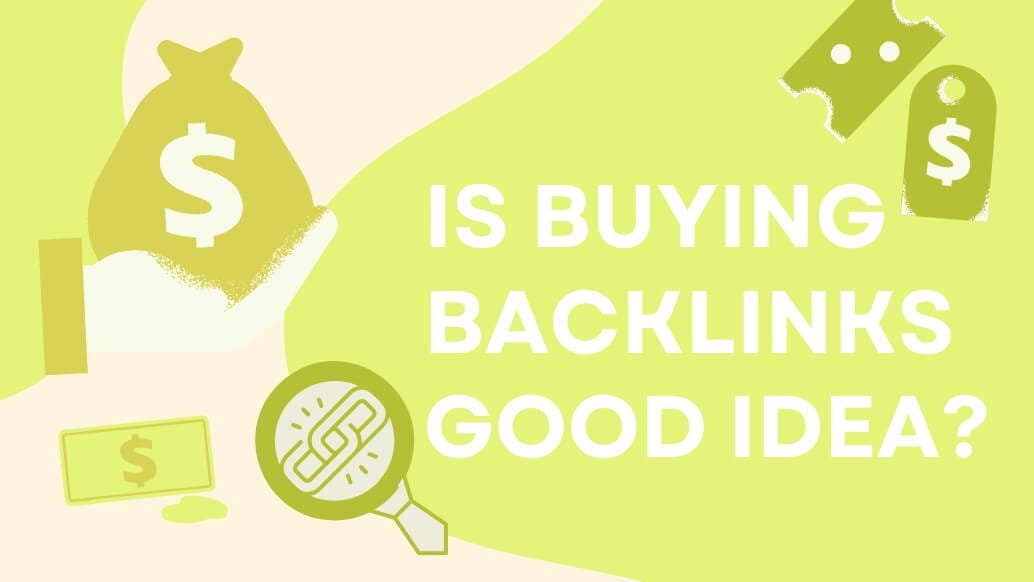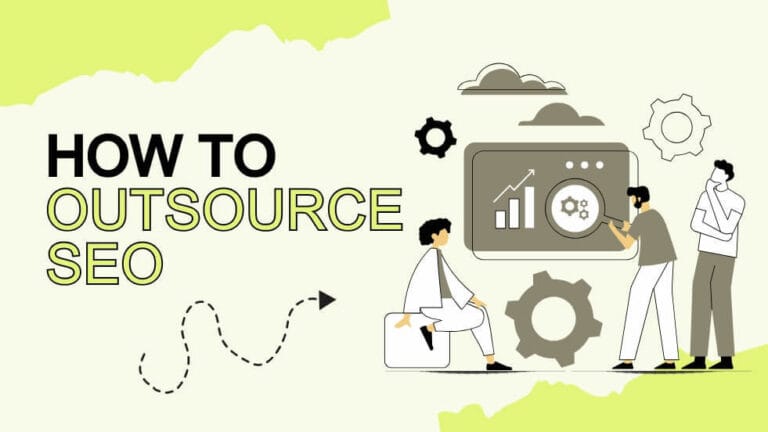Key Takeaways
- Backlink Dilemma: Purchasing backlinks can provide you with instant SEO gains, but at the same time, penalties and credibility damage are the risks.
- Market Insights: Buying backlinks is a controversial practice, yet it’s very common, with 92% of SEOs believing that competitors are doing this.
- Cost Consideration: Backlinks range from $50 for niche edits to over $1500 for editorial mentions, meaning that the investment has to be made correctly.
- Best Practices: Focusing on relevance, authority, and natural link profiles will help minimize risks while maximizing the benefits of paid links.
- Alternatives and Risks: While buying backlinks presents a shortcut, ethical, organic link-building practices are safer and a better option for the sustainability of long-term success.
Is your website like a store with amazing content, hidden in a quiet alley where no one can find it?
No one knows it’s there, no matter how amazing it is. That’s the reality for many site owners with valuable content that struggles to reach the spotlight.
As a site owner, I come across these link-buying offers daily.
This is the point where many start to ask, “Should I buy backlinks to get noticed?” It’s a tempting shortcut, promising quicker rankings and organic traffic. But backlinks are like double-edged swords. When handled well, they can open the floodgates of success, but when done poorly, they can bury your site in penalties and obscurity.
Here’s what’s at stake: with 94% of marketers believing backlinks will remain a vital ranking factor for years, ignoring this aspect of SEO could leave your website at a disadvantage. But is buying backlinks worth the risk?
It is high time to take a closer look at the main advantages, disadvantages, and better strategies concerning this complex topic.
The Right Way to Buy Links
Purchasing backlinks can be a risky decision. Success depends on taking the right approach rather than relying on shortcuts. The focus should be on creating a strategy that is safe and aligned with your business goals.
Best Places to Buy Backlinks
Finding a reliable source for quality backlinks can be challenging, but here are some popular and effective options:
1. Paid Guest Posts
Paid guest posts are one of the safest options in link building. You work with websites in your niche to publish high-quality articles with your backlink.
- Pros: Customizable content and contextual relevance.
- Cons: Requires extra effort to ensure the article adds value.
2. HARO (Connectively)
HARO (Connectively) connects journalists with experts looking for backlinks. In exchange for great insights, you could earn backlinks on very credible sites.
- Pros: High-quality, editorial links from top-tier sites.
- Cons: Time-consuming and highly competitive.
3. PR Links
PR links are earned through press releases or media mentions. A successful PR campaign can yield mentions that create backlinks from authoritative news sources.
- Pros: Increases authority and credibility.
- Cons: It is very costly, digital PR link building costs range from $1,250 to $1,500 per unique link, excluding syndicated links.
4. Link Publishers
Some websites or publishers specialize in selling links within existing or new content. These platforms are often huge networks.
- Pros: Huge variety of niches and price points.
- Cons: Will include low-quality sites, so be prepared for heavy vetting.
5. Link-Building Agencies
Professional agencies manage the process of securing backlinks for you. These services often include guest posts, niche edits, and PR mentions.
- Pros: Convenient and scalable.
- Cons: Costs can be steep, and quality varies across agencies.
Pro Tip: 69% of marketers report positive impacts on rankings for difficult keywords by working with quality link-building services.
How to Buy Backlinks
Here’s how you can buy backlinks safely:
Step 1: Search for a Reliable Link Provider
Firstly, start by exploring products from reputable service providers that have positive feedback and proven results, like Create and Grow’s link-building services. Seek reviews, case studies, or recommendations from fellow marketers or other experts. It helps you to minimize fraudsters and ensures you hire the most competent people for the job.
Step 2: Find Out How Many Links You Need
To do this, use Ahrefs or backlink tools like Semrush to look into your competitors’ backlink profiles. This will assist you in estimating the volume of links essential to remain competitive in your niche.
For example, you can use Keyword Difficulty Checker in Ahrefs to learn how many links you need to rank in Google:
Source: Ahrefs
Step 3: Schedule Your Link Building Activities
Better avoid buying too many links at once to comply with Google’s policy. Instead, spread purchases over weeks or months to closely mimic the natural process of link building.
Step 4: Choose the Categories of Links or Services for Purchase
Determine which types of backlinks align with your strategy. Common options include guest blogging, niche edits, or paid editorial placements. Each option has its own pricing structure and benefits, so choose one that fits your budget and aligns with your ultimate goals.
Step 5: Focus on Target URLs
Another important thing to do is to identify which specific pages on your website will benefit from better rankings. These could be product pages or blog posts, category pages, etc.
Step 6: Optimize Your Anchor Text
Select anchor text carefully. It is preferred that the anchor texts you use in backlinks are a mix of your primary keywords, branded terms, and generic phrases to avoid making the links look unnatural, which could trigger penalties from the search engines.
Which Backlink Types Are Safe to Purchase?
Certain backlink types pose less risk when purchased carefully.
Here are some safe options:
| Backlink Type | Risk Level |
| Paid Guest Posts | Medium |
| Editorial Mentions | Low |
| Niche Edits | Low-Medium |
Is Buying Backlinks Good or Bad?
The debate around buying backlinks boils down to one key factor: quality. It was said that a single, quality backlink placed at the right location could really help to push you up the rankings. But low-quality links could be detrimental to your site and they even attract Google penalties.
Expert opinion
It doesn’t matter how you acquire backlinks, but the quality of the backlinks you obtain will make or break your website’s ranking

Director of Marketing at Stan Ventures and a Semrush-certified SEO expert.
Buying backlinks has always been a contentious strategy in SEO, yet there is no doubt about the effect it produces on rankings.
Positive Outcomes:
63% of businesses think buying links positively impacts ranking. The benefits can be understood as follows:
- Better search engine rankings
- More traffic and credibility
- Faster results as compared to organic link building
Negative Effects:
But with rewards come risks. As much as buying backlinks may bring short-term benefits, the risks are just too significant to ignore:
- Google penalty risk
- Possible lost rankings
- Waste of investment on low-quality or irrelevant links
Why Buy Backlinks?
Here are some compelling reasons businesses choose to buy backlinks:
- Time Savings: Organic building of links may take some months, while buying up links speeds up the process.
- Improved Domain Authority: High-authority backlinks will help build your site’s credibility.
- Competition in Tough Niches: Certain niches are so competitive that paid links provide the extra push needed.
- Low-Link Content Boost: Paid links are a strategic way to go since 94% of online content doesn’t get any links from other websites.
Do Paid Links Work?
When done right, paid links can drive results.
Here’s what they can achieve:
- Enhanced Rankings: High-quality links can improve your position on search results.
- More Traffic: It is an obvious fact that with increased visibility, the traffic available also increases.
- Strengthened Domain Authority: Trustworthy backlinks can help to strengthen your site’s position on the internet.
However, by opting for the paid option, the figure increases to only 2 more links per month. It also supports the idea that content quality is more important than quantity.
Google’s Position on Buying Backlinks
Google strongly discourages buying backlinks, labeling it a violation of its Webmaster Guidelines.
Building links to your site is a very time-consuming process. According to the study, 47.8% of SEO professionals believe that it is extremely challenging to acquire high-quality backlinks for SEO.
The main thing is to avoid low-quality practices like link farms or spam directory sites. Focus on securing backlinks that offer real value to users.
How Much Does a Backlink Cost?
The cost of backlinks depends on types, quality, and niche. Paid backlinks cost, on average, around $361.44. However, this amount is highly variable for several reasons.
Here’s an overview:
| Service | Cost |
| Paid Niche Editing | $50 – $300 |
| Paid Guest Posts | $80 – $150 |
| Editorial Mentions | $900 – $1 500 |
How Much Does Paid Niche Editing Cost?
Cost: $50 – $300 per link.
Details: Inserting backlinks into existing content.
How Much Do Paid Guest Posts Cost?
Cost: $80 – $150 for mid-level sites. Higher for authority websites.
Details: Publishing a guest post with a backlink to your site.
How Much Do Editorial Mentions Cost?
Cost: $900 – $1 500 for top-tier websites.
Details: Securing mentions in high-authority editorial content.
Interestingly, approximately 31% of SEO experts and marketing managers invest less than $300 to acquire a single high-quality link. This means that although some businesses may invest much in backlinks, others focus on acquiring affordable but quality links within their set budget.
The Risks of Buying Links
Buying links for a site is not without some level of risk. Yet, 74.3% of link builders do it anyway.
What Are the Risks of Buying Links?
- Penalties: Google penalties can damage your site’s ranking.
- Wasted Investment: Paying for low-quality or irrelevant backlinks can yield no ROI.
- Reputation Damage: Overusing paid links could harm your brand credibility.
Evaluate Backlink Quality
To ensure you get the quality links, before purchasing, consider these quality checks:
- Domain Authority (DA): High DA sites often carry more weight, but I’ve seen smaller niche sites with lower DA drive incredible results because of their focused audience.
- Relevance: This is non-negotiable. A link from an unrelated site might bring short-term numbers, but it’s the relevant links that create long-term impact.
- Traffic: Organic traffic signals real users visiting the site, and that usually means higher credibility. I always check consistency in the pattern of traffic, as spikes can show risky PBNs.
- Anchor Text: Natural, contextual anchor text isn’t just about rankings, it’s about building trust with readers who might click through.
- Spam Score: Avoid sites with high spam scores to minimize penalties.
Fun Fact: Websites with 30-35 backlinks attract more than 10 500 monthly visits. Quality links matter more than quantity!
Conclusion
Buying backlinks in 2025 carries risks. While purchasing links can offer short-term gains, it often leads to setbacks when low-quality links or link schemes are involved. There are more effective and sustainable ways to build links that don’t come with the same risks.
Invest wisely in strong backlinks, monitor your backlink profile, and prioritize content quality. Backlinks work best when they’re part of a comprehensive SEO strategy focused on delivering value.
Did you find this guide useful? Share it with your network on your favorite social media platform and help others make informed SEO decisions!
Frequently Asked Questions





